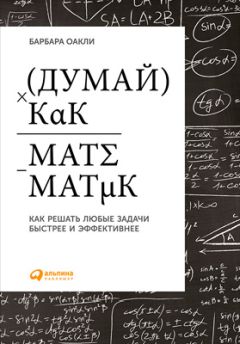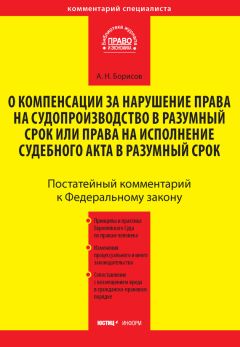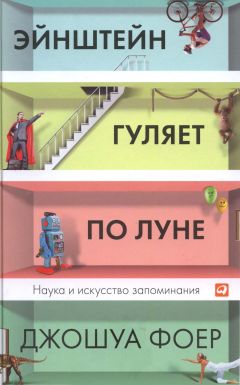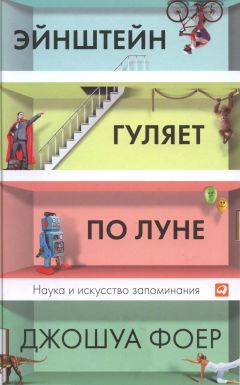Ознакомительная версия.
Дуэк К. Гибкое сознание. Новый взгляд на психологию развития взрослых и детей. — М.: Манн, Иванов и Фербер, 2013.
Койл Д. Код таланта. — М.: Астрель, ВКТ, 2011.
Колвин Дж. Талант ни при чем! Что на самом деле отличает выдающихся людей? — М.: Альпина Бизнес Букс, 2012.
Лурия А. Р. Маленькая книжка о большой памяти. — М., 1968.
Фейнман Р., Лейтон Р., Сэндс М. Фейнмановские лекции по физике. Выпуск 2. Пространство. Время. Движение. — М.: Мир, 1965.
Фейнман Р. Вы, конечно, шутите, мистер Фейнман! — М.: АСТ, Астрель, 2011.
Фейнман Р. Не все ли равно, что думают другие? — М.: АСТ, 2014.
Феррис Т. Совершенное тело за 4 часа. — М.: Добрая книга, 2013.
Фоер Дж. Эйнштейн гуляет по Луне. Наука и искусство запоминания. — М.: Альпина Паблишер, 2013.
Фьоре Н. Легкий способ перестать откладывать дела на потом. — М.: Манн, Иванов и Фербер, 2013.
Эмметт Р. Книга для лентяя, или Как научиться не откладывать все на потом. — СПб.: Амфора, 2008.
Aaron, R., and R. H. Aaron. Improve Your Physics Grade. New York: Wiley, 1984.
Ainslie, G., and N. Haslam. “Self-control.” In Choice over Time, edited by G. Loewenstein and J. Elster, 177–212. New York: Russell Sage Foundation, 1992.
Amabile, T. M., et al. “Creativity under the gun.” Harvard Business Review 80, 8 (2002): 52.
Amidzic, O. et al. “Pattern of focaly-bursts in chess players.” Nature 412 (2001): 603–604.
Andrews-Hanna, J. R. “The brain’s default network and its adaptive role in internal mentation.” Neuroscientist 18, 3 (2012): 251–270.
Armstrong, J. S. “Natural learning in higher education.” In Encyclopedia of the Sciences of Learning, 2426–2433. New York: Springer, 2012.
Arum, R., and J. Roksa. Academically Adrift. Chicago: University of Chicago Press, 2010.
Baddeley, A., et al. Memory. New York: Psychology Press, 2009.
Baer, M., and G. R. Oldham. “The curvilinear relation between experienced creative time pressure and creativity: Moderating effects of openness to experience and support for creativity.” Journal of Applied Psychology 91, 4 (2006): 963–970.
Baumeister, R. F., and J. Tierney. Willpower. New York: Penguin, 2011.
Beilock, S. Choke. New York: Free Press, 2010.
Bengtsson, S. L., et al. “Extensive piano practicing has regionally specific effects on white matter development.” Nature Neuroscience 8, 9 (2005): 1148–1150.
Bilali, M., et al. “Does chess need intelligence? — A study with young chess players.” Intelligence 35, 5 (2007): 457–470.
Bilali, M., et al. “Why good thoughts block better ones: The mechanism of the pernicious Einstellung (set) effect.” Cognition 108, 3 (2008): 652–661.
Boice, R. Procrastination and Blocking. Westport, CT: Praeger, 1996.
Bouma, A. Lateral Asymmetries and Hemispheric Specialization. Rockland, MA: Swets & Zeitlinger, 1990.
Bransford, J. D, et al. How People Learn. Washington, DC: National Academies Press, 2000.
Brent, R., and R. M. Felder. “Learning by solving solved problems.” Chemical Engineering Education 46, 1 (2012): 29–30.
Brown, J. S., et al. “Situated cognition and the culture of learning.” Educational Researcher 18, 1 (1989): 32–42.
Burson K., et al. “Skilled or unskilled, but still unaware of it: how perceptions of difficulty drive miscalibration in relative comparisons.” Journal of Personality and Social Psychology 90, 1 (2006): 60–77.
Buzan, T. Use Your Perfect Memory. New York: Penguin, 1991.
Cai, Q., et al. “Complementary hemispheric specialization for language production and visuospatial attention.” PNAS 110, 4 (2013): E322—E330.
Cannon, D. F. Explorer of the Human Brain. New York: Schuman, 1949.
Carey, B. “Cognitive science meets pre-algebra.” New York Times, September 2, 2012; http://www.nytimes.com/2013/09/03/science/cognitive-science-meets-pre-algebra.html?ref=science.
Carpenter, S. K., et al. “Using spacing to enhance diverse forms of learning: Review of recent research and implications for instruction.” Educational Psychology Review 24, 3 (2012): 369–378.
Carson, S. H., et al. “Decreased latent inhibition is associated with increased creative achievement in high-functioning individuals.” Journal of Personality and Social Psychology 85, 3 (2003): 499–506.
Cassilhas, R. C., et al. “Spatial memory is improved by aerobic and resistance exercise through divergent molecular mechanisms.” Neuroscience 202 (2012): 309–17.
Cat, J. “On understanding: Maxwell on the methods of illustration and scientific metaphor.” Studies in History and Philosophy of Science Part B 32, 3 (2001): 395–441.
Charness, N., et al. “The role of deliberate practice in chess expertise.” Applied Cognitive Psychology 19, 2 (2005): 151–165.
Chase, W. G., and H. A. Simon. “Perception in chess.” Cognitive Psychology 4, 1 (1973): 55–81.
Chi, M. T. H., et al. “Categorization and representation of physics problems by experts and novices.” Cognitive Science 5, 2 (1981): 121–152.
Chiesa, A., and A. Serretti. “Mindfulness-based stress reduction for stress management in healthy people: A review and meta-analysis.” Journal of Alternative Complementary Medicine 15, 5 (2009): 593–600.
Cho, S., et al. “Hippocampal-prefrontal engagement and dynamic causal interactions in the maturation of children’s fact retrieval.” Journal of Cognitive Neuroscience 24, 9 (2012): 1849–1866.
Christman, S. D., et al. “Mixed-handed persons are more easily persuaded and are more gullible: Interhemispheric interaction and belief updating.” Laterality 13, 5 (2008): 403–426.
Chu, A., and J. N. Choi. “Rethinking procrastination: Positive effects of ‘active’ procrastination behavior on attitudes and performance.” Journal of Social Psychology 145, 3 (2005): 245–264.
Cook, N. D. Tone of Voice and Mind. Philadelphia: Benjamins, 2002.
Cook, N. D. “Toward a central dogma for psychology.” New Ideas in Psychology 7, 1 (1989): 1–18.
Cooper, G., and J. Sweller. “Effects of schema acquisition and rule automation on mathematical problem-solving transfer.” Journal of Educational Psychology 79, 4 (1987): 347.
Cowan, N. “The magical number 4 in short-term memory: A reconsideration of mental storage capacity.” Behavioral and Brain Sciences 24, 1 (2001): 87–114.
Cree, G. S., and K. McRae. “Analyzing the factors underlying the structure and computation of the meaning of chipmunk, cherry, chisel, cheese, and cello (and many other such concrete nouns).” Journal of Experimental Psychology: General 132, 2 (2003): 163–200.
Dali, S. Fifty Secrets of Magic Craftsmanship. New York: Dover, 1948 (reprint 1992).
DeFelipe, J. “Brain plasticity and mental processes: Cajal again.” Nature Reviews Neuro science 7, 10 (2006): 811–817.
DeFelipe, J. Cajal’s Butterflies of the Soul: Science and Art. New York: Oxford University Press, 2010.
DeFelipe, J. “Sesquicentenary of the birthday of Santiago Ramón y Cajal, the father of modern neuroscience.” Trends in Neurosciences 25, 9 (2002): 481–484.
Demaree, H., et al. “Brain lateralization of emotional processing: Historical roots and a future incorporating ‘dominance.’” Behavioral and Cognitive Neuroscience Reviews 4, 1 (2005): 3–20.
Derman, E. Models. Behaving. Badly. New York: Free Press, 2011.
Deslauriers, L., et al. “Improved learning in a large-enrollment physics class.” Science 332, 6031 (2011): 862–864.
Dijksterhuis, A., et al. “On making the right choice: The deliberation-without-attention effect.” Science 311, 5763 (2006): 1005–1007.
Drew, C. “Why science majors change their minds (it’s just so darn hard).” New York Times, November 4, 2011.
Duckworth, A. L., and ME Seligman. “Self-discipline outdoes IQ in predicting academic performance of adolescents.” Psychological Science 16, 12 (2005): 939–944.
Dudai, Y. “The neurobiology of consolidations, or, how stable is the engram?” Annual Review of Psychology 55 (2004): 51–86.
Duke, R. A., et al. “It’s not how much; it’s how: Characteristics of practice behavior and retention of performance skills.” Journal of Research in Music Education 56, 4 (2009): 310–321.
Dunlosky, J., et al. “Improving students’ learning with effective learning techniques: Promising directions from cognitive and educational psychology.” Psychological Science in the Public Interest 14, 1 (2013): 4–58.
Dunning, D., et al. “Why people fail to recognize their own incompetence.” Current Directions in Psychological Science 12, 3 (2003): 83–87.
Edelman, S. Change Your Thinking with CBT. New York: Ebury, 2012.
Efron, R. The Decline and Fall of Hemispheric Specialization. Hillsdale, NJ: Erlbaum, 1990.
Ehrlinger, J., et al. “Why the unskilled are unaware: Further explorations of (absent) self-insight among the incompetent.” Organizational Behavior and Human Decision Processes 105, 1 (2008): 98–121.
Eisenberger, R. “Learned industriousness.” Psychological Review 99, 2 (1992): 248.
Ellenbogen, J. M., et al. “Human relational memory requires time and sleep.” PNAS 104, 18 (2007): 7723–7728.
Ellis, A. P., et al. “Team learning: Collectively connecting the dots.” Journal of Applied Psychology 88, 5 (2003): 821.
Elo, A. E. The Rating of Chessplayers, Past and Present. London: Batsford, 1978.
Emsley, J. The Elements of Murder. New York: Oxford University Press, 2005.
Ericsson, K. A. Development of Professional Expertise. New York: Cambridge University Press, 2009.
Ericsson, K. A., et al. “The making of an expert.” Harvard Business Review 85, 7/8 (2007): 114.
Erlacher, D., and M. Schredl. “Practicing a motor task in a lucid dream enhances subsequent performance: A pilot study.” The Sport Psychologist 24, 2 (2010): 157–167.
Fauconnier, G., and M. Turner. The Way We Think. New York: Basic Books, 2002.
Felder, R. M. “Memo to students who have been disappointed with their test grades.” Chemical Engineering Education 33, 2 (1999): 136–137.
Felder, R. M. “Impostors everywhere.” Chemical Engineering Education 22, 4 (1988): 168–169.
Felder, R. M., et al. “A longitudinal study of engineering student performance and retention. V. Comparisons with traditionally-taught students.” Journal of Engineering Education 87, 4 (1998): 469–480.
Fields, R. D. “White matter in learning, cognition and psychiatric disorders.” Trends in Neurosciences 31, 7 (2008): 361–370.
Fischer, K. W., and T. R. Bidell. “Dynamic development of action, thought, and emotion.” In Theoretical Models of Human Development: Handbook of Child Psychology, edited by W. Damon and R. M. Lerner. New York: Wiley, 2006: 313–399.
Foerde, K., et al. “Modulation of competing memory systems by distraction.” Proceedings of the National Academy of the Sciences 103, 31 (2006): 11778–11783.
Gabora, L., and A. Ranjan. “How insight emerges in a distributed, content-addressable memory.” In Neuroscience of Creativity, edited by O. Vartanian et al. Cambridge, MA: MIT Press, 2013: 19–43.
Gainotti, G. “Unconscious processing of emotions and the right hemisphere.” Neuropsychologia 50, 2 (2012): 205–218.
Gazzaniga, M. S. “Cerebral specialization and interhemispheric communication: Does the corpus callosum enable the human condition?” Brain 123, 7 (2000): 1293–1326.
Gazzaniga, M. S., et al. “Collaboration between the hemispheres of a callosotomy patient: Emerging right hemisphere speech and the left hemisphere interpreter.” Brain 119, 4 (1996): 1255–1262.
Geary, D. C. The Origin of Mind. Washington, DC: American Psychological Association, 2005.
Geary, D. C. “Primal brain in the modern classroom.” Scientific American Mind 22, 4 (2011): 44–49.
Geary, D. C., et al. “Task Group Reports of the National Mathematics Advisory Panel; Chapter 4: Report of the Task Group on Learning Processes.” 2008. http://www2.ed.gov/about/bdscomm/list/mathpanel/report/learning-processes.pdf
Gentner, D., and M. Jeziorski. “The shift from metaphor to analogy in western science.” In Metaphor and Thought, edited by A. Ortony, 447–480. Cambridge, UK: Cambridge University Press, 1993.
Gerardi, K., et al. “Numerical ability predicts mortgage default.” Proceedings of the National Academy of Sciences 110, 28 (2013): 11267–11271.
Giedd, J. N. “Structural magnetic resonance imaging of the adolescent brain.” Annals of the New York Academy of Sciences 1021, 1 (2004): 77–85.
Gleick, J. Genius. New York: Pantheon Books, 1992.
Gobet, F. “Chunking models of expertise: Implications for education.” Applied Cognitive Psychology 19, 2 (2005): 183–204.
Gobet, F., et al. “Chunking mechanisms in human learning.” Trends in Cognitive Sciences 5, 6 (2001): 236–243.
Gobet, F., and H. A. Simon. “Five seconds or sixty? Presentation time in expert memory.” Cognitive Science 24, 4 (2000): 651–682.
Graham, P. “Good and bad procrastination.” 2005. http://paulgraham.com/procrastination.html
Granovetter, M. “The strength of weak ties: A network theory revisited.” Sociological Theory 1, 1 (1983): 201–233.
Granovetter, M. S. “The strength of weak ties.” American Journal of Sociology (1973): 1360–1380.
Gruber, H. E. “On the relation between aha experiences and the construction of ideas.” History of Science Cambridge 19, 1 (1981): 41–59.
Guida, A., et al. “How chunks, long-term working memory and templates offer a cognitive explanation for neuroimaging data on expertise acquisition: A twostage framework.” Brain and Cognition 79, 3 (2012): 221–244.
Gŭntŭrkŭn, O. “Hemispheric asymmetry in the visual system of birds.” In The Asymmetrical Brain, edited by K. Hugdahl and R. J. Davidson, 3–36. Cambridge, MA: MIT Press, 2003.
Hake, R. R. “Interactive-engagement versus traditional methods: A six-thousand-student survey of mechanics test data for introductory physics courses.” American Journal of Physics 66 (1998): 64–74.
Halloun, I. A., and D. Hestenes. “The initial knowledge state of college physics students.” American Journal of Physics 53, 11 (1985): 1043–1055.
Houdé, O. “Consciousness and unconsciousness of logical reasoning errors in the human brain.” Behavioral and Brain Sciences 25, 3 (2002): 341–341.
Houdé, O., and N. Tzourio-Mazoyer. “Neural foundations of logical and mathematical cognition.” Nature Reviews Neuroscience 4, 6 (2003): 507–513.
Immordino-Yang, M. H., et al. “Rest is not idleness: Implications of the brain’s default mode for human development and education.” Perspectives on Psychological Science 7, 4 (2012): 352–364.
Ознакомительная версия.





